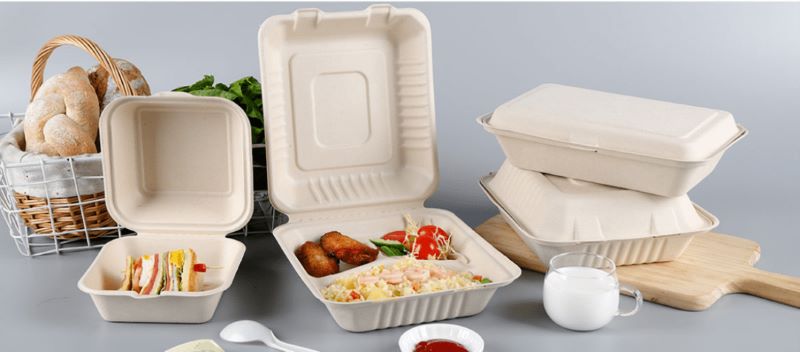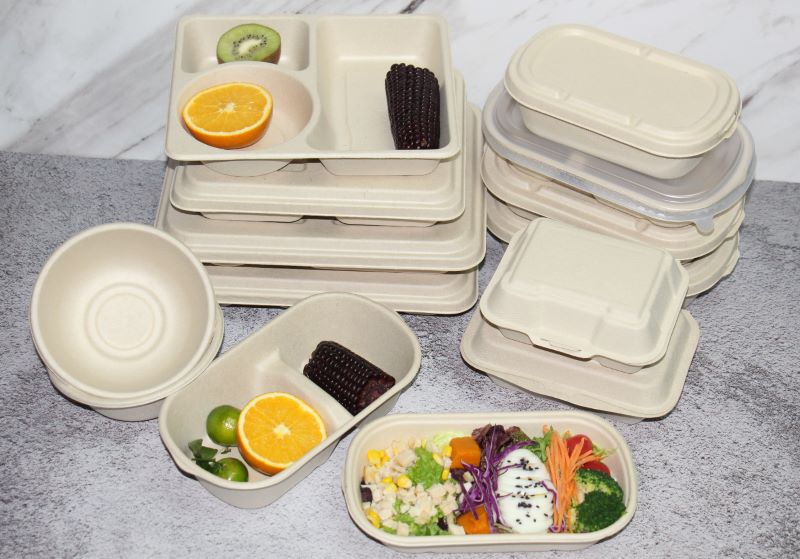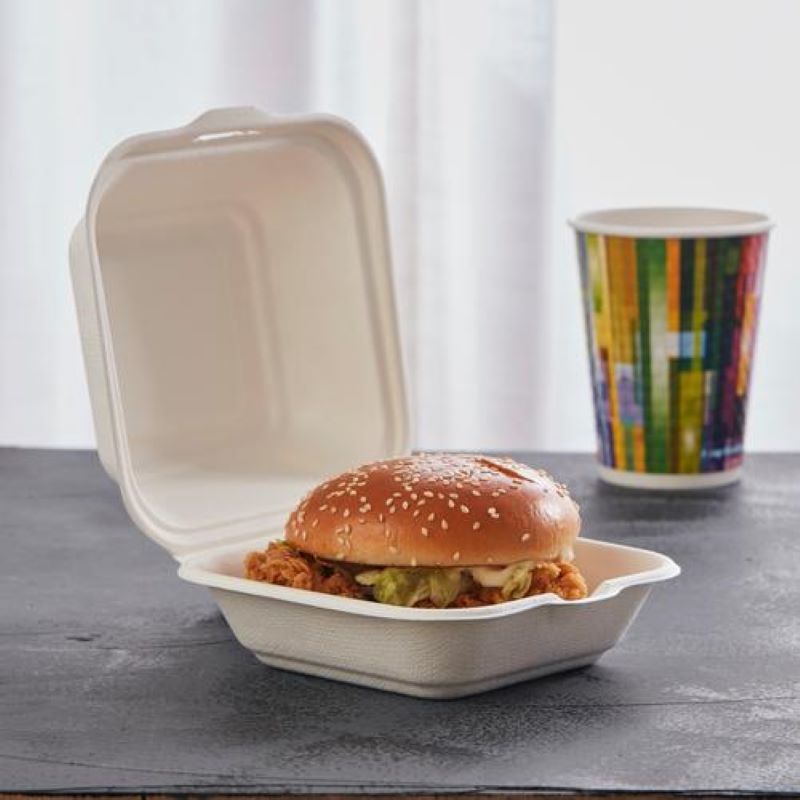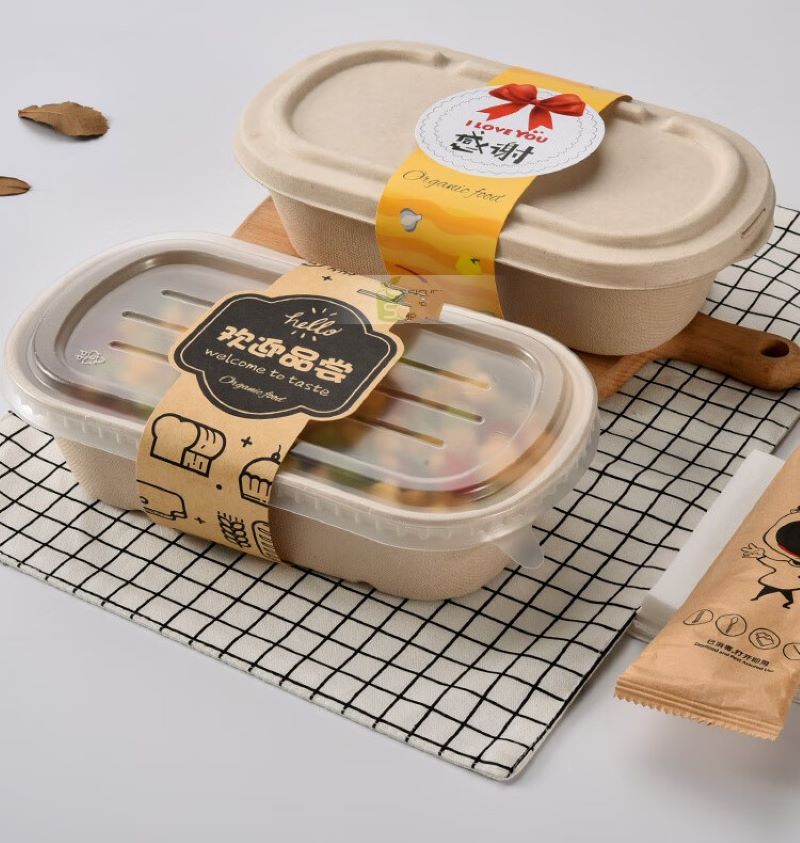What is the future development of bagasse (pulp molded) lunch boxes?
With the ban on plastics, tableware made from various environmentally friendly materials has flooded the market, varying greatly in quality and design. Unfortunately, some companies falsely claim to offer eco-friendly options while continuing to sell non-degradable products, misleading consumers. However, we believe that sugarcane pulp and bamboo pulp will emerge as the ideal alternatives to plastic.

Degradable Pulp Molding Products
Sugarcane pulp, derived from natural, highly concentrated fiber, stands out among renewable plant fibers like wheat, reeds, straw, bamboo, and palm. These raw materials are abundant and versatile, making them suitable for producing degradable products. Sugarcane pulp products can fully degrade within 90 days under natural conditions and are compostable both at home and industrially. The degradation process primarily yields water and carbon dioxide, leaving no waste or pollution behind. In contrast, non-degradable plastic tableware releases harmful substances, polluting the environment and endangering human health.
Biodegradable Plastic Products
Biodegradable plastics, such as those made from PLA, PBAT, and PHA, offer a partial solution to replacing conventional plastics. However, these materials are currently expensive, and their natural degradation requires specific conditions that are not always met, meaning many of these products cannot fully decompose.
Non-Degradable Products
Materials like PP, PE, and PET, commonly used in traditional plastic products such as rice cooker handles, pipes, and cable sheaths, are now restricted under the plastic ban. These materials are unsuitable for tableware, as their incineration generates pollutants that harm the environment and human health. This is a key reason behind the national push to eliminate non-degradable plastics.
Future Trends
The ban on non-degradable plastic tableware is a clear directive, and the focus on cracking down on these products is essential. While new materials like PLA have gained popularity, they come with higher costs, which many businesses have found challenging.
Sugarcane pulp and bamboo pulp offer a cost-effective alternative to newer eco-friendly materials like PLA and PBAT. As production scales and the market grows, the price of sugarcane pulp is expected to decrease further, positioning it as a leading material in the shift away from plastics.




